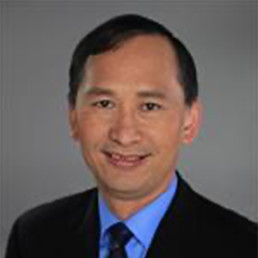
Tung Nguyen, M.D.
Dr. Tung Nguyen, the Stephen J. McPhee, MD Endowed Chair in General Internal Medicine and Professor of Medicine at the University of California, San Francisco (UCSF); director of the UCSF Asian American Research Center on Health; chair of the Progressive Vietnamese American Association (PIVOT); AAPI Progressive Action board member; and former Chair of President Obama’s Advisory Commission on AAPIs.
My name is Tung Nguyen, and I am a physician, researcher, teacher, and advocate.
Primarily, I am fighting for policies that will help the poor, immigrants, and minorities in the U.S. I do this through a combination of generating data, building coalitions, and working on infrastructure change.
I was born in Vietnam and came to the U.S. as a refugee at the end of the Vietnam War. My experience as a refugee and immigrant, particularly with my family’s tenuous situation, made me realize that systems are not designed to help people like us. As a result, I have been working on improving our systems, particularly in the area of health, for the populations above.
As a researcher and physician who believes in doing everything I can that the evidence indicates for my patients, it is clear that many of the factors that prevent individuals, families, and communities from having good health are driven by systematic problems. There is no way to address systematic barriers without engaging in policy and advocacy. To be true to my calling as a healthcare provider, activism is part of the work.
Being Asian American is integral to my advocacy. First, our communities are not as active as they could be in advocating for ourselves and for others. Thus, I can do more by working with AAPIs on empowering ourselves to advocate for issues that matter to us and to others. Second, my personal and professional experience as an Asian American informs what I see as the problems and solutions.
As usual, the main personal challenges are time and money. On a broader level, challenges include lack of engagement among our community members and lack of interest among policy makers.
I think that it is important to be an advocate, at least for our patients if not on a broader level. I find that many healthcare providers end up blaming their patients for things outside the control of both patients and providers. Advocacy enables the provider to understand the problems that patients face and provides an outlet for the provider to intervene and not feel so powerless. It is important, of course, not to overcommit, as we all need to take care of ourselves and our families. Pick an important topic, or an important community, to work on and with. Chances are as you go deeper into the issue, the solutions are similar to the solutions for other problems.
On the policy side, we have been fighting against the public charge rule. I have also been leading efforts to diversify the healthcare and health research workforce at UCSF as well as more community engagement between UCSF and our communities. For 2020, my work will be focused mostly on the elections. When we cannot change the policies because of the policy makers, we have to change the policy makers.
Thanks to Ninad Bhat (MS2, UCSF chapter member) for proofreading and editing!
Source: http://cancer.ucsf.edu/news/2018/11/15/get-to-know-tung-nguyen-md.9272